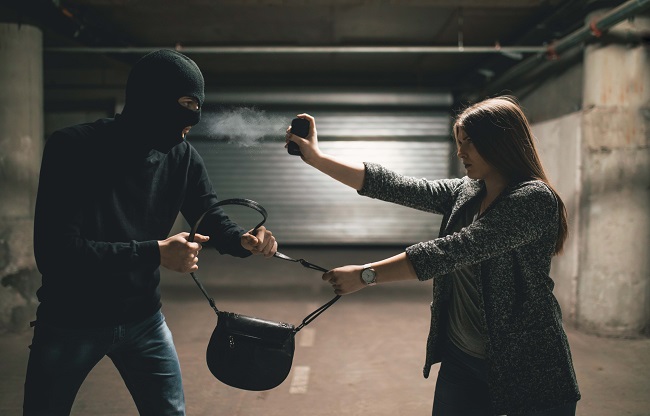The Karnataka High Court denied retracting a criminal case against a private company owner couple who allegedly used pepper spray in self-defense. Judge M. Nagaprasanna's bench, referring to the United States, declared such sprays as dangerous chemical weapons. However, in our country, it's not uncommon for pepper spray to be found in many women's handbags. The Delhi Metro allows female passengers to carry spray bottles up to 100 milliliters in size for their defense when needed.
What's the Case About
The High Court, while hearing a case against the directors of a private company, Ganesh Narayanan and his wife, labeled the use of pepper spray in a scuffle with security guard Randeep Das as a 'dangerous weapon.' The wife had sprayed the guard during the altercation.
The Court Deems the Spray Dangerous
Following the guard's complaint, the matter went to court. The couple argued self-defense, which the court dismissed, explaining that the couple wasn't in immediate life-threatening danger, hence the use of dangerous pepper spray was unjustified. The court agreed with the portrayal of the spray as a dangerous weapon in America.

Source: aajtak
Is Pepper Spray Banned in the USA?
In the USA, pepper spray is legal for self-defense. All 50 states permit its possession, each with varying conditions regarding the size of the bottle and age requirements for minors, often necessitating the presence of parents or guardians. For example, a license is required in Massachusetts. Pepper sprays also vary in strength; those sold for self-defense are milder to temporarily disorient attackers, while stronger variants are used for riot control and crowd management.
Several states in the USA also allow the possession of Tasers and firearms for self-defense, though this leniency has been controversial since there's no guarantee that these weapons will only be used defensively.
Defining Self-Defense
The right to self-defense means any individual can use reasonable force in their protection. IPC (Indian Penal Code) provides the right to defend oneself or one's property from wrongful aggression. Sections like Section 96 discuss this right, which collectively allows the use of force in dangerous situations. However, the term 'reasonable' is subject to interpretation.

Source: aajtak
Proof Required in Court
The law stipulates that the force used must be proportional to the threat faced. Excessive retaliation during self-defense must be justified in court, with the aggressor genuinely posing a life-threatening risk. Self-defense claims are also scrutinized for any provocation by the party claiming defense, influencing court decisions and resulting punishments.
For self-defense, one can also carry a knife or bladed tool within legal specifications. While standard kitchen knives may be carried, blades exceeding a length of 9 inches and a width of 2 inches are restricted under the Arms Act.

Source: aajtak
What the Law Says About Killing in Self-Defense
Sections 100 and 103 address this, explaining that if one causes an attacker's death in immediate defense of life, such a case is not considered a crime. However, it must be legally proven that the defendant was indeed in imminent danger. This can extend to severe situations like rape, kidnapping, and forced confinement.
Most of Europe Considers Pepper Spray Use Illegal
In 2016, Denmark's police faced backlash for fining a teenager who had used pepper spray in self-defense during a sexual assault. Most European countries, including Denmark, Belgium, the Netherlands, Norway, Greece, Hungary, Sweden, and Ireland, consider the use of pepper spray as illegal and view it as a dangerous weapon.




